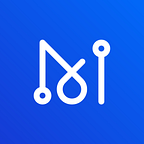Intelligent Contract Milestone Update:
Completed Deliverables for April:
- Conversion from standardized language to modular contracts.
- Personalized rewriting of standardized smart contract modules.
- Support for mainstream contract languages, including (ERC20, ERC721, ERC1155).
Significance of the Completed Modules for April:
- Conversion from Standardized Language to Modular Contracts: The core of this feature lies in transforming natural language instructions into modular smart contract code. Users only need to describe the business logic of the contract in their familiar language, and the model can automatically convert it into structured Solidity code. This process greatly simplifies the writing and deployment of contracts, lowering the barriers to blockchain technology. This functionality not only improves development efficiency but also enables non-professionals to participate in the creation of smart contracts.
- Personalized Rewriting of Standardized Smart Contract Modules: The standardization and modularization of smart contracts are trends in contract development. However, different business scenarios often require appropriate modifications and personalized customization of these standard modules. This feature supports customization based on standard modules according to specific user needs. This maintains the generality and reusability of the modules while also meeting the flexibility of specific business requirements. This enhanced flexibility provides more precise blockchain solutions for various industries.
- Support for Mainstream Contract Languages: Current smart contract development is primarily concentrated on the Ethereum platform, where smart contracts are mainly written in Solidity. The model supports mainstream contract types such as ERC20, ERC721, and ERC1155, covering various application scenarios including token issuance, non-fungible tokens (NFTs), and multi-token standards. By supporting these standards, the model not only meets broad market needs but also demonstrates its breadth and depth of application in the field of blockchain smart contract development.
Significance for the Future Development of Large Models:
The implementation of these three features signifies that the efficient transformation from natural language to smart contract code has become possible. This not only opens up smart contract writing capabilities to non-programmers but also signifies a trend towards the democratization of blockchain application development. In the future, the widespread adoption of this technology might lead to more business scenarios integrating blockchain technology solutions, further promoting the proliferation and application of blockchain technology.
Please stay tuned for the testing invitation.
The Matrix AI Network was founded in 2017. In 2023, we enter Matrix 3.0 blending neuroscience with our previous work to realize the vision of the Matrix films.
FOLLOW MATRIX:
Website | GitHub | Twitter | YouTube
Telegram (Official) | Telegram (Masternodes)
Owen Tao (CEO) | Steve Deng (Chief AI Scientist) | Eric Choy (CMTO)
